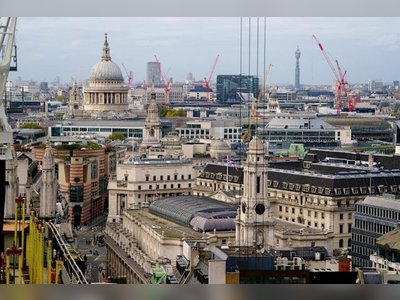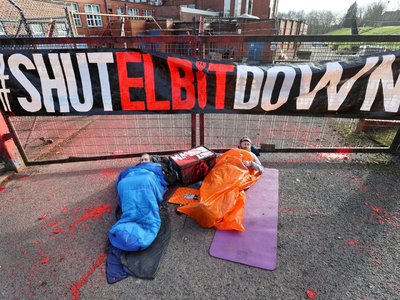For Koreans, an uncomfortable reminder that racial discrimination is still legal
As South Korea marked its 65th Memorial Day on Saturday a crowd of 150 people marched along the streets of the nation’s capital of Seoul.
Pedestrians turned to stop and stare as the column continued along its 1.2km route through the shopping district of Myeongdong, the crowd chanting and waving pickets as it went.
But the marchers were not celebrating the countless servicemen who had given their lives in conflicts such as the Battle of Bongoh Town and the Korean war.
Instead, they were expressing solidarity for the Black Lives Matter movement in the United States, and calling for an end to the “everyday racism” to be found in South Korea itself.
The killing of George Floyd, an African-American man who died in Minneapolis on May 25 during an attempted arrest in which a police officer knelt on his neck for nearly nine minutes, has not only prompted worldwide demonstrations of solidarity with the American movement, it has forced many countries to re-examine their own attitudes to race and discrimination.
In South Korea it has provided an uncomfortable reminder that despite widespread public acceptance that racism exists, the country still lacks a law to penalise discrimination on the basis of race.
Nine in 10 Koreans accept that “general racism exists in South Korea”, according to a survey by the Women Migrants Human Rights Centre of Korea, while reports of people being denied service at bars or by taxis on the basis of their ethnicity are common.
Yet as Lee Wan, an activist with the Solidarity for Asian Human Rights and Culture, points out, “the country doesn’t even have a legal definition of racial discrimination.”
An attempt in 2006 to enact an anti-discrimination law failed and similar efforts have been stalled ever since, even after the UN Human Rights Committee recommended such legislation in 2015. However, there is some hope, with the National Human Rights Commission of Korea telling the South China Morning Post this week that it was working on a draft law to propose to the National Assembly that would penalise discrimination on the grounds of race, gender and employment status, among other things.
For those marching on Saturday, such legislation cannot come too soon.
“People have asked why I organised such a protest in our country, but I know that there are migrant workers, multicultural families and international students who face discrimination even here at home,” said Shim Ji-hoon, the 34-year-old social worker who organised the march.
“[If attitudes don’t change] what happened to George Floyd might happen here too.”
A black protester who joined the march, who works as a teacher and asked not to be identified, explained: “Racism here is when I find a seat in the subway and people avoid sitting next to me, or when my friends and I are turned away from clubs for no reason, or when jobs only want to hire white candidates.”
One of the most visible forms of prejudice, said Lee, was against migrant workers from developing Asian countries who worked in low-paid but intensive labour jobs.
“Korean bosses talk down on migrants who are not from advanced economies and even physically abuse them at times,” he said, adding that migrant workers were often sent to the most dangerous construction sites without the proper safety education or tools.
A 2017 report by the Ministry of Employment and Labour found Korean workers had a 0.8 per cent chance of being involved in an industrial accident, while foreign workers had a 1.16 per cent chance.
Lee said the coronavirus pandemic had made the situation worse. “Immigrants, who paid taxes and acted like any other ordinary resident of the country, were excluded from receiving emergency supplies of masks and disaster relief funds at the onset of the pandemic,” he said.
HOPES FOR THE FUTURE
However, activists say a new generation of South Koreans willing to examine their society’s deeply ingrained prejudices mean there is hope for the future.
Among those working to influence the debate is the online cartoonist Yerong, who on May 31 drew a cartoon detailing the events leading to Floyd’s death to explain it to Korean readers.
Yerong’s post on Instagram would go on to receive more than 39,000 likes and the cartoonist gained more than 50,000 followers on social media. The viral cartoon was translated into eight languages including Chinese, English, and Italian by overseas fans, while a paper copy of the drawing was seen in the streets of Ottawa, Canada.
“I think the media plays a big role in shaping our views of social issues, so I felt a responsibility to do something after seeing what happened to George Floyd,” says Yerong, 26, whose real name is Ko Ye-sung.
“We can’t just exploit foreigners, we need to accept them as who they are as individual participants in our society.”
In recent days she has been taking medication for a panic disorder brought on by the hate mail she received after making her post. Some people wrote she should “care about her country rather than concentrate on someone else’s”, while others told her racial discrimination was “a natural, human instinct”.
To Pape San, 24, a data engineer from France, such sentiments are all too familiar. San, whose parents are from Senegal, started his own YouTube channel when he arrived in South Korea in 2017. He has since used it to enable minorities to air their opinions on social issues to his 173,000 subscribers.
San said many Koreans were sensitive to seeing black men travelling with Korean women.
“I’ve noticed that if people don’t necessarily pay particular attention to me when I’m alone, they pay extra attention to me when I’m with a Korean woman.”
He said this was a “barrier” that hindered his attempt to connect more deeply with Korean people but some people had been more welcoming.
“There are also people in public bathhouses who come up to me first to talk to me and share food with me,” he said. “Even if the older generation may not change so much, the younger generation is where I see hope of change.”
GENERATION CHANGE
Lee from the Solidarity for Asian Human Rights and Culture said that racism among the older generation should be seen in a historical context. The parents and grandparents of today had lived during a time that stressed national unity due to the constant threat of invasion and the need to compete industrially with neighbouring countries.
“In a way, discrimination against minorities was justified through a need to survive and prosper,” Lee said.
“The homogenous population of Koreans did not have too much contact with foreigners in the past, but Koreans now need to be tolerant towards diverse peoples as the country has never been so global as today.”
According to the Ministry of Justice, the number of foreigners living in the country increased by seven per cent last year, topping 2.5 million.
Activists such as Lee take heart in noting that among the crowd on Saturday there were many young faces. One of them, Seline Sohn, 12, had gone against her family’s wishes to be there.
“Much of the aged population is pretty judgemental,” said the middle schooler. “My own family is also kind of racist, so my dad was quite against me coming here today. But I told him that this was my business.”
Yerong the cartoonist also sees reason for hope.
“Some people who have sent hate comments in the past have sent private messages to me saying that they have changed their minds about issues like racial discrimination after going through their own experiences,” she said. “That’s when I realise that my work has not been all for nothing.”













